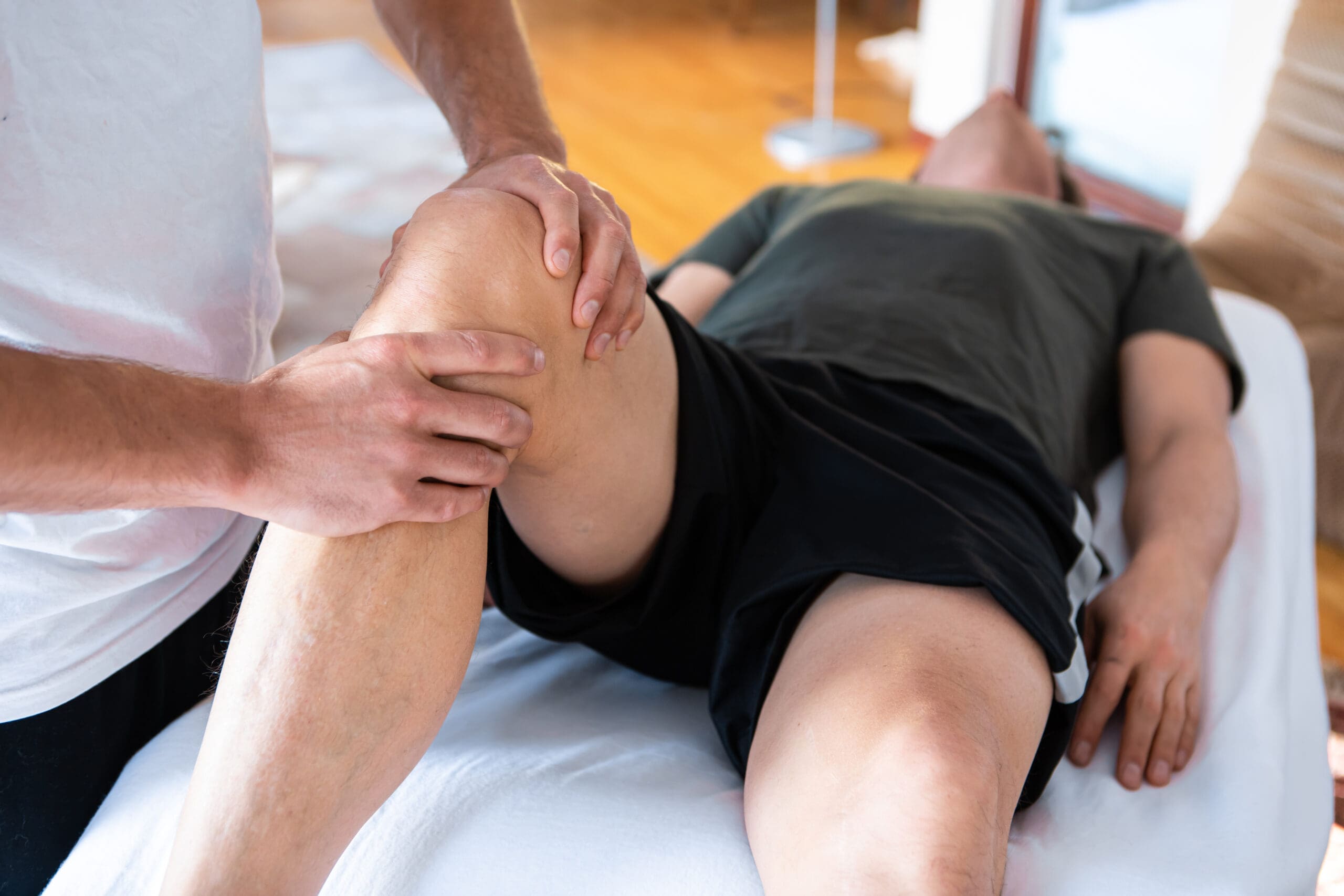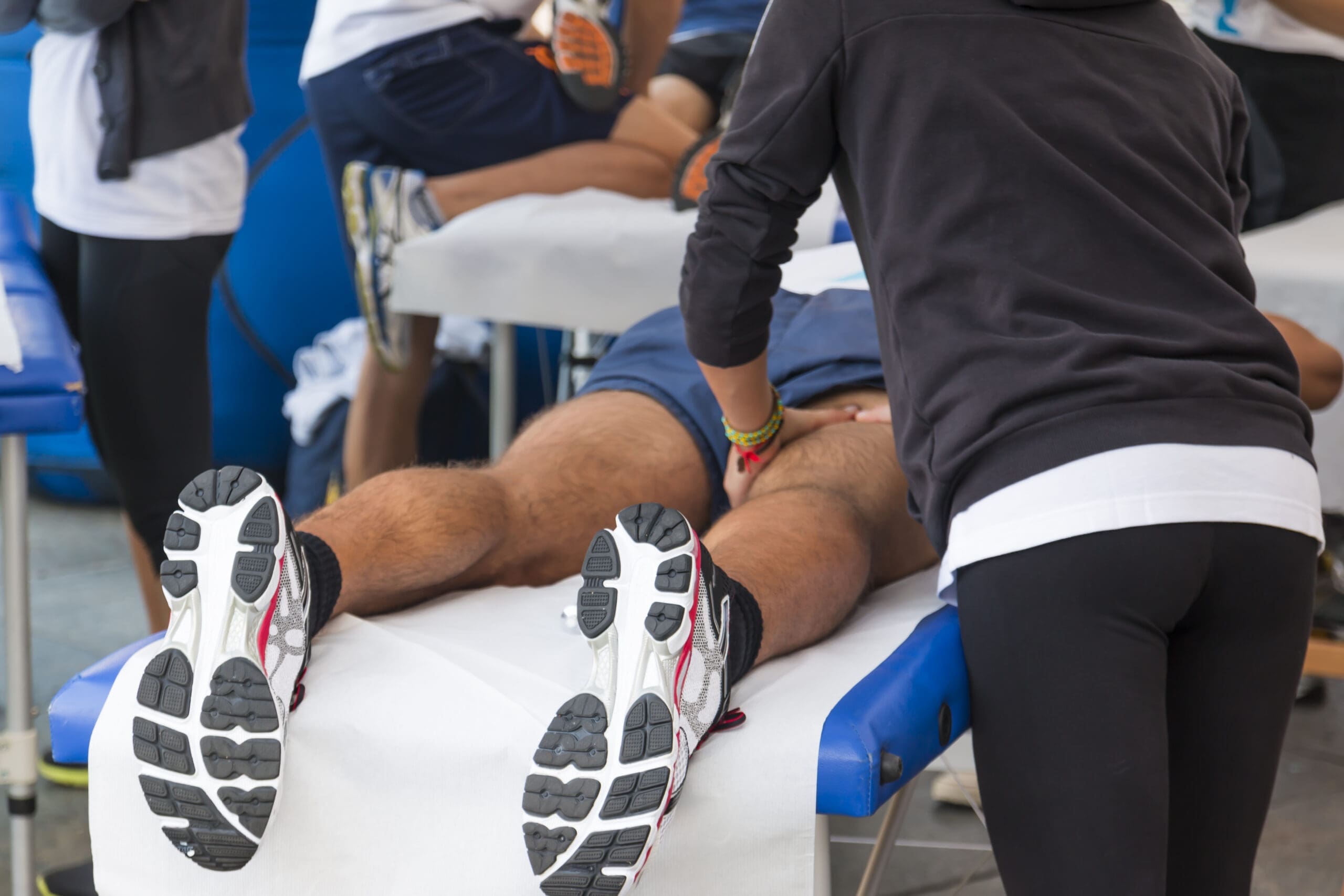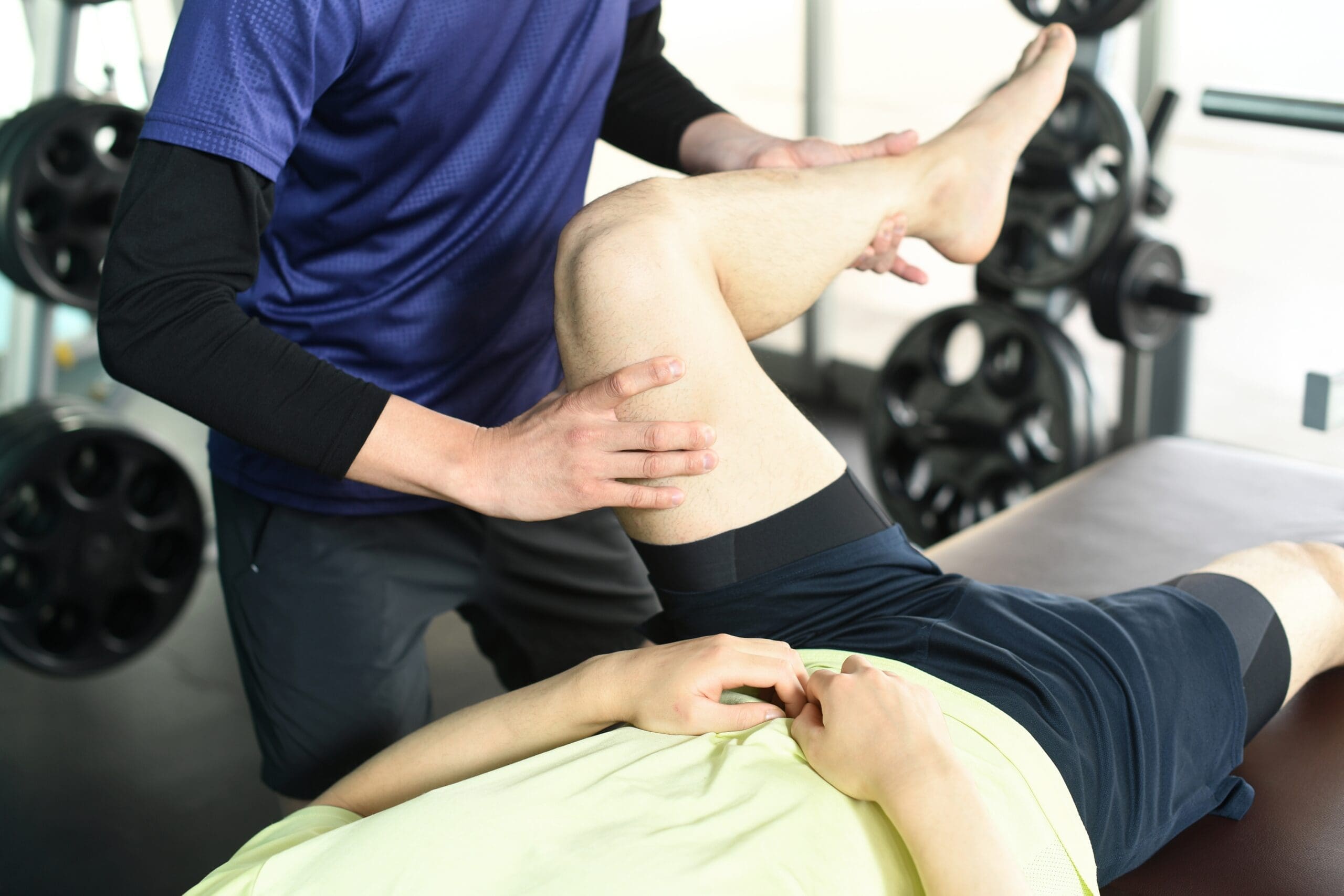How to become a Sports Massage Therapist
Everything you need to know about becoming a Sports Massage Therapist in 2025
Are you passionate about sports and eager to make a meaningful impact on athletes’ lives? Becoming a Sports Massage Therapist might just be the perfect career path for you. This rewarding profession not only allows you to work closely with athletes, helping them enhance their performance and recover from injuries, but also offers the opportunity to develop a deep understanding of the human body and its mechanics.
With an increasing awareness of the importance of physical well-being, the demand for skilled Sports Massage Therapists is on the rise. By embarking on this journey, you’ll be stepping into a field that is both fulfilling and in high demand. Whether you’re looking to start fresh or add new skills to your existing repertoire, now is the perfect time to explore what it takes to become a successful Sports Massage Therapist.
In this Sports Massage Therapist career guide
What does a Sports Massage Therapist do?
A Sports Massage Therapist plays a crucial role in the world of athletics and physical fitness, offering specialised techniques to enhance performance and aid recovery. Unlike a typical massage therapist, a sports massage therapist is trained to understand the specific needs of athletes and active individuals. Their work involves assessing the condition of muscles, identifying areas of tension or injury, and applying targeted massage techniques to alleviate discomfort.
These professionals are skilled in manipulating soft tissues to improve circulation, flexibility, and range of motion. This not only helps in preventing injuries but also accelerates recovery from strenuous activities or existing injuries. By incorporating sports massage into their routine, athletes can maintain peak performance levels with reduced risk of muscle strains or fatigue.
Moreover, sports massage therapists often provide valuable advice on stretching exercises and postural improvements tailored to an individual’s sport or activity level. This holistic approach ensures that clients gain long-term benefits beyond immediate relief.
In essence, a sports massage therapist is an indispensable ally for anyone serious about maintaining their physical health while pushing their athletic boundaries. Whether you’re training for a marathon or simply striving for personal fitness goals, regular sessions with these experts can make all the difference in achieving your objectives safely and effectively.
Responsibilities of a Sports Massage Therapist
In the fast-paced world of sports, maintaining optimal physical condition is crucial for athletes to perform at their best. This is where the expertise of a Sports Massage Therapist becomes indispensable. These professionals play a vital role in an athlete’s health and performance, offering a range of services that go beyond just relieving muscle tension.
Injury Prevention: One of the primary responsibilities of a Sports Massage Therapist is to help prevent injuries. By assessing an athlete’s muscle condition and addressing any areas of tension or imbalance, therapists can reduce the risk of strains and other injuries that could sideline an athlete.
Recovery Enhancement: Post-competition recovery is essential for athletes looking to maintain peak performance levels. Sports massage aids in reducing muscle soreness and improving circulation, which accelerates recovery times and helps athletes get back to their training routines more quickly.
Performance Improvement: Through tailored massage techniques, therapists can enhance flexibility and range of motion, contributing directly to improved athletic performance. This not only boosts confidence but also gives athletes a competitive edge.
Stress Reduction: The mental aspect of sports cannot be overlooked, and stress management is another area where sports massage proves beneficial. Regular sessions help in reducing anxiety levels, promoting relaxation, and improving overall mental well-being.
Tailored Treatment Plans: Every athlete has unique needs based on their sport, body type, and personal goals. A skilled Sports Massage Therapist will develop customised treatment plans tailored specifically to address these individual requirements.
By fulfilling these responsibilities with precision and care, Sports Massage Therapists ensure that athletes are not only physically prepared but also mentally equipped to face their challenges head-on. Investing in professional sports massage therapy is undoubtedly a wise decision for any serious athlete aiming for success on the field or court.

Skills needed to become a Sports Massage Therapist
Becoming a sports massage therapist is an incredibly rewarding career choice for those passionate about helping athletes and active individuals maintain peak physical condition. However, it requires a specific set of skills and attributes to excel in this field. Here’s a list of the essential skills you’ll need:
In-depth Knowledge of Anatomy and Physiology: Understanding the human body is crucial for any sports massage therapist. You must be able to identify muscles, joints, and tissues accurately to provide effective treatment.
Strong Communication Skills: Being able to communicate clearly with clients is vital. You need to understand their needs, explain treatment plans, and provide advice on injury prevention.
Empathy and Compassion: Athletes often come in with injuries or stress; having a compassionate approach can help them feel at ease during treatment.
Physical Stamina: Sports massage therapy can be physically demanding, requiring strength and endurance as you work with different clients throughout the day.
Attention to Detail: Each client will have unique needs; being detail-oriented ensures that you provide personalised care tailored to each individual’s requirements.
Problem-solving Abilities: Often, you’ll need to assess complex issues related to muscle tension or injury recovery; being able to think critically will aid in devising effective treatment strategies.
Commitment to Continuous Learning: The field of sports therapy constantly evolves with new techniques and research findings—staying updated is key for delivering top-notch care.
By honing these skills, you’ll not only enhance your ability as a sports massage therapist but also ensure that your clients receive the best possible care on their journey towards optimal health and performance.
What qualifications do Sports Massage Therapist’s need?
To embark on a rewarding career as a Sports Massage Therapist, acquiring the right qualifications is crucial. The journey typically begins with obtaining a Level 3 Diploma in Sports Massage Therapy, which serves as the foundational qualification. This course covers essential topics such as anatomy, physiology, and massage techniques tailored for sports-related injuries and rehabilitation.
For those looking to deepen their expertise and enhance their employability, pursuing a Level 4 or even Level 5 Diploma is highly recommended. These advanced courses delve into more complex therapeutic techniques and provide a greater understanding of injury assessment and treatment planning.
Moreover, staying updated with continuous professional development (CPD) courses can be immensely beneficial. These additional certifications not only broaden your skill set but also demonstrate your commitment to maintaining high standards of practice.
Membership in professional bodies like the Federation of Holistic Therapists (FHT) or the Sports Massage Association (SMA) can further bolster your credentials. Such affiliations often offer networking opportunities, access to industry insights, and additional training resources.
Ultimately, while qualifications are vital for establishing credibility and competence in this field, they also empower you to deliver effective treatments that can significantly improve clients’ performance and well-being.
Work environment and hours
As a sports massage therapist, your work environment and hours can be as dynamic and flexible as the profession itself. Whether you’re working in a bustling clinic, a serene spa, or even setting up your own practice, the opportunities are vast and varied. This career allows you to tailor your working hours to suit both your lifestyle and the needs of your clients.
Typically, sports massage therapists enjoy the freedom of setting their schedules around peak demand times. This often includes evenings and weekends when clients have more availability outside of their regular work commitments. Such flexibility is particularly beneficial if you’re looking to balance other personal or professional responsibilities alongside your practice.
Moreover, many therapists find themselves travelling to different locations such as sports clubs, events, or even client homes. This not only breaks the monotony of a static workplace but also enriches your experience by meeting diverse people in varied settings.
Ultimately, being a sports massage therapist means you have significant control over where and when you work—empowering you to create an optimal work-life balance while still providing essential services that enhance physical wellbeing for athletes and enthusiasts alike.

How much do Sports Massage Therapist’s earn?
When considering a career as a Sports Massage Therapist in the UK, understanding the potential earnings is crucial. The salary for a Sports Massage Therapist can vary widely based on several factors, including experience, location, and clientele. On average, entry-level therapists might earn between £18,000 to £22,000 annually. However, with experience and a solid client base, earnings can increase significantly.
Experienced therapists who have built up a reputation and possibly even specialised in certain sports or therapeutic techniques can command higher fees. In bustling urban centres like London or Manchester, where demand is high and clients are willing to pay premium rates for quality service, annual earnings could exceed £30,000.
Moreover, many Sports Massage Therapists choose to work independently or as part of a freelance network. This flexibility allows them to set their own rates and working hours. By building strong relationships with sports teams or health clubs and offering additional services such as personal training advice or wellness workshops, they can further enhance their income.
Ultimately, while starting salaries might seem modest compared to other professions in the health sector, the potential for growth is substantial for those who are dedicated and entrepreneurial-minded. Investing in continuous professional development and marketing oneself effectively can lead to a rewarding career both financially and personally.
Types of roles for Sports Massage Therapist’s
If you are considering a career as a Sports Massage Therapist, you’ll be pleased to know that the opportunities within this field are diverse and rewarding. From working with professional athletes to supporting everyday individuals seeking relief from muscle tension, the roles available can cater to a variety of interests and specialisations.
One prominent role for Sports Massage Therapists is within professional sports teams. Here, therapists work closely with athletes to enhance performance, prevent injuries, and aid in recovery. This environment demands a deep understanding of sports-related injuries and the physical demands placed on athletes.
Another exciting avenue is working in rehabilitation centres or clinics. In these settings, therapists collaborate with physiotherapists and other healthcare professionals to support patients recovering from injuries or surgeries. This role requires patience and an empathetic approach as you guide individuals through their healing journey.
For those who prefer a more flexible schedule or entrepreneurial path, setting up a private practice is an excellent option. As an independent therapist, you can tailor your services to meet the needs of your clients—whether they are amateur sports enthusiasts or individuals simply looking for relaxation and stress relief.
Additionally, some therapists choose to specialise further by focusing on specific types of massage techniques or targeting niche markets such as prenatal massage for expecting mothers involved in fitness activities.
No matter which path you choose within this fulfilling profession, being a Sports Massage Therapist offers not only the chance to improve others’ well-being but also provides personal satisfaction through helping clients achieve their health and fitness goals.

Professional Development and Career Paths
Embarking on a career as a sports massage therapist offers an exciting journey filled with opportunities for professional growth and development. While the foundational skills you acquire through initial training are crucial, the path to becoming a seasoned expert in this field is paved with continuous learning and specialisation.
One of the most compelling aspects of this career is the diverse range of professional development options available. From advanced courses in specific techniques like myofascial release or deep tissue massage to workshops focusing on injury prevention and rehabilitation, there are countless ways to enhance your expertise. These specialised skills not only improve your service offerings but also significantly boost your employability across various settings, such as sports teams, rehabilitation centres, and private practice.
Moreover, networking plays a vital role in shaping your career trajectory. Engaging with professional associations and attending industry conferences can open doors to new opportunities and collaborations. Such interactions often provide fresh insights into emerging trends and innovations within the field.
In addition to honing technical skills, developing strong communication abilities is essential for building rapport with clients and understanding their unique needs. This holistic approach ensures that you deliver tailored treatments that effectively support athletes in achieving their performance goals.
Ultimately, investing time in professional development not only enhances your skill set but also positions you as a trusted expert within the industry. By continuously expanding your knowledge base and adapting to new challenges, you’ll be well-equipped to carve out a successful career path that aligns with your passions and aspirations in sports massage therapy.



